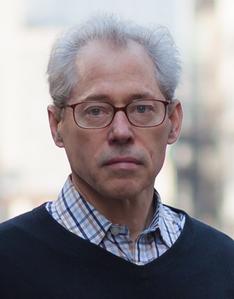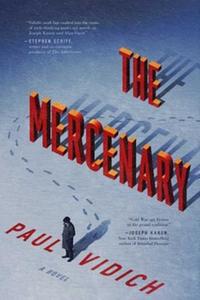
|
|
| photo: Bekka Palmer | |
Paul Vidich was a senior executive in the entertainment industry for more than 20 years. After leaving his business career, he turned to writing full time. He is the author of An Honorable Man, The Good Assassin and The Coldest Warrior. His essays and nonfiction have appeared in the Wall Street Journal, Lithub, the Nation and CrimeReads. His fourth novel, The Mercenary, was just published by Pegasus Books.
On your nightstand now:
Deacon King Kong by James McBride. Set in a fictionalized version of the Brooklyn housing project where McBride grew up. It begins with an attempted murder that takes place in front of 16 witnesses, many of whom know the shooter and the victim. The novel is crowded with characters whose backstories are connected and fates intertwined.
Favorite book when you were a child:
A High Wind in Jamaica by Richard Hughes. I grew up in the Caribbean and was drawn to the setting. This is a delightfully evil tale of pirates and children. Its dreamlike action begins among the decayed plantation houses of late 19th-century Jamaica, before moving out to sea, where Hughes tells the story of a group of children thrown on the mercy of a crew of pirates.
Your top five authors:
In alphabetical order, my top six: Jorge Luis Borges, Charlotte Brontë, Graham Greene, Jhumpa Lahiri, John le Carré and Alice Munro. All great storytellers with strong moral convictions.
Book you've faked reading:
Moby-Dick. For 20 years, I talked about the book as if I'd read it, but I'd only read the first 100 pages. I finally finished the book several years ago and I'm glad I did. It's a masterpiece.
 Book you're an evangelist for:
Book you're an evangelist for:
The Prime of Miss Jean Brodie by Muriel Spark. For its distinctive voice, compressed narrative style and the unforgettable Miss Brodie. She is an imperious but irresistible fictional character whose schoolteacher's life with her students jumped off the printed page to become a part of British culture in the 1950s.
Book you've bought for the cover:
I adore the original pulp fiction covers of Jim Thompson's and Raymond Chandler's books, but you can't buy them anymore, except as collectibles at Otto Penzler's Mysterious Book Shop in lower Manhattan.
Book you hid from your parents:
I never hid a book from my parents. It was the opposite. My mother tried to push Philip Roth's Portnoy's Complaint on me as a teenager and I would have none of it.
Book that changed your life:
The Day of the Jackal. It was 1971. I was trying to figure out what to do with my life and I read Frederick Forsyth's thriller. I thought, I should try writing something like that. I reread it recently and it holds up.
Favorite line from a book:
"O cursed spite that ever I was born to set it right." Hamlet, end of act one. Hamlet's dilemma. To avenge one murder, he must commit another.
Five books you'll never part with:
Books I go back to for inspiration: The Great Gatsby, F. Scott Fitzgerald; The Spy Who Came in from the Cold, John le Carré; Jane Eyre, Charlotte Brontë; A Coffin for Dimitrios, Eric Ambler; The Talented Mr. Ripley, Patricia Highsmith. They have in common a captivating central character. And the writing is superb.
Book you most want to read again for the first time:
The Road, Cormac McCarthy. Gripping and frightening.
Great spy novels written by women:
While researching a top-10 list of spy novels, I was surprised to discover that spy novels, which started in England before World War I, were mostly written by men. British mysteries, on the other hand, were mostly written by women. This began to change with Helen MacInnes, who was among the first women to write popular spy novels. Stella Rimington is another excellent writer in the genre, as is Gayle Lynds, who Library Journal calls "the reigning queen of espionage fiction." Current young authors joining the club include Lauren Wilkinson, whose American Spy is deservedly well-regarded.

